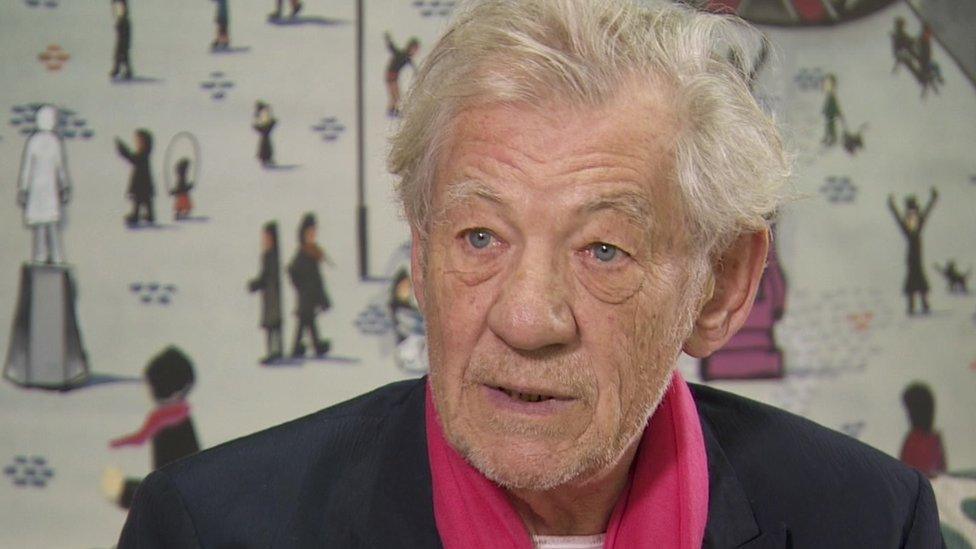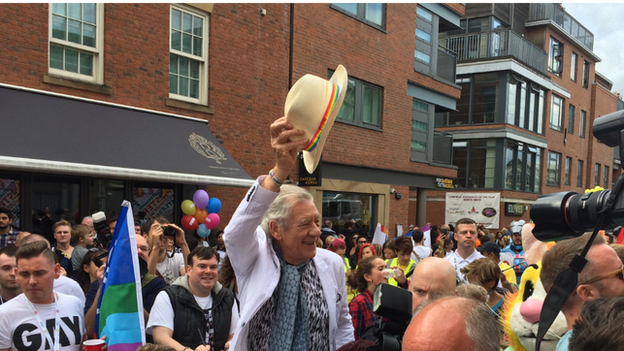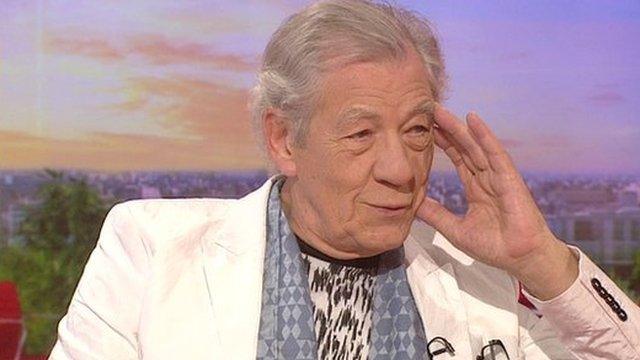Greater Manchester scheme aims to end older LGBT inequality
- Published
Sir Ian McKellen said he felt "criminalised" because of his sexuality in his youth
A project to "end the inequalities" faced by older LGBT people has been launched in Greater Manchester.
The LGBT Foundation's Pride in Ageing aims to tackle social isolation and ensure "access to inclusive housing and care" for people over 50.
The foundation's patron Sir Ian McKellen said "waving the banner for full equality" had his "total support".
Councillor Brenda Warrington said the scheme supported the region's aim to be "one of the best places to grow older".
A spokesman for the foundation said the project also aimed to "celebrate the positive aspects of being an LGBT person in mid-to-later life" and, alongside working with a number of agencies across the region, would bring people together to "share their stories" and build a "community of active and empowered people".
'Higher risk of isolation'
He said their research had found about 60% of LGBT people over 50 in the area were "not confident that social care and support services would be able to understand and meet their needs", while over 40% had the same concerns about mental health services.
The charity's chief executive Paul Martin said all LGBT people had the "right to an excellent quality of life in later years".
"We know that LGBT people over 50 are at a much higher risk of isolation... and may be facing discrimination due to their sexual orientation or gender identity," he said.
Sir Ian said that "although the laws have changed, attitudes haven't altogether".
"You want to feel you are surrounded by, at least, friendship and, on occasions, love and respect and all those things can be missing if people slip back into the old attitudes."
Ms Warrington, the area's lead for ageing and equalities, said the scheme would "help policymakers much better understand and meet the needs of older LGBT people when it comes to important issues like housing, health, and social care".
- Published6 June 2019

- Published25 April 2019

- Published29 August 2015

- Published29 August 2015
